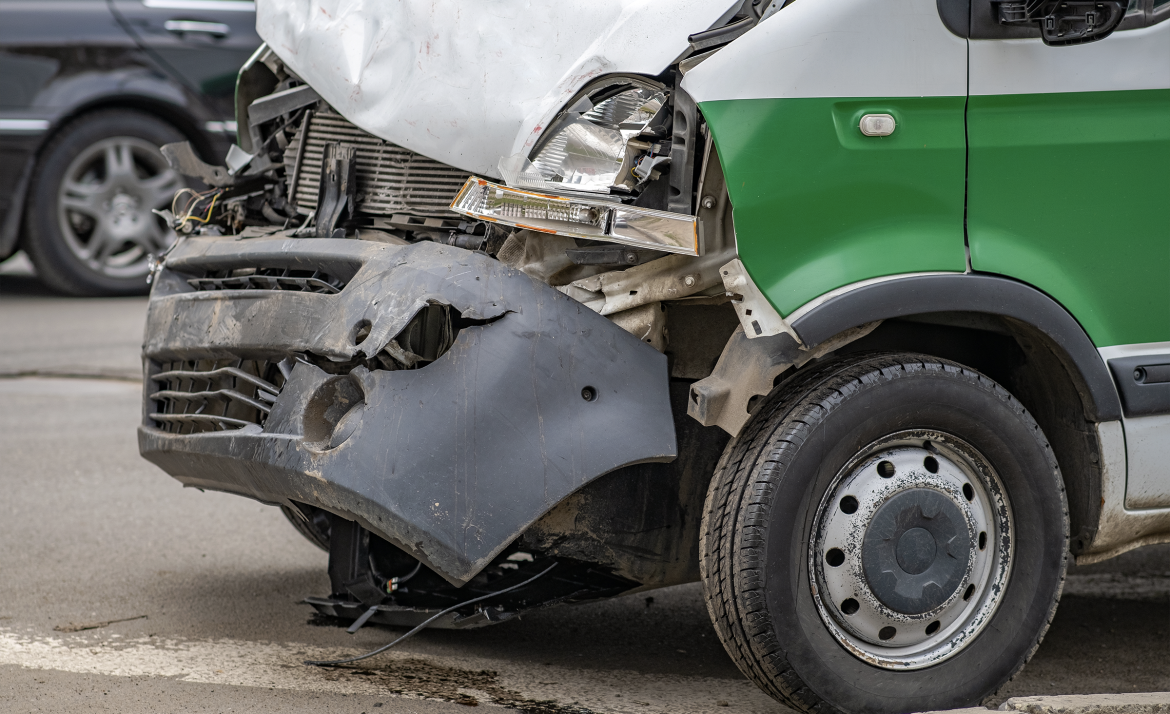Understanding Commercial Vehicle Accidents
Definition of a Commercial Vehicle
A commercial vehicle is any vehicle used for business purposes, including semi-trucks, delivery vans, buses, and company-owned cars. These vehicles are often larger and heavier than regular passenger cars, increasing the risk of severe accidents.
How Commercial Vehicle Accidents Differ from Regular Car Accidents
Unlike regular car accidents, commercial vehicle accidents often involve multiple parties, such as the driver, the employer, and insurance companies. Additionally, federal and state regulations apply to commercial vehicles, making legal proceedings more complex.
Common Causes of Commercial Vehicle Accidents
- Driver fatigue
- Mechanical failures
- Distracted driving
- Improper loading of cargo
- Speeding or reckless driving
Immediate Steps to Take After an Accident
Ensuring Safety: Check for Injuries and Move to a Safe Location
After an accident, check yourself and others for injuries. If possible, move to a safe location to avoid further collisions.
Contacting Emergency Services
Call 911 immediately, even if injuries seem minor. Police presence ensures that an official report is filed, which may be crucial for insurance claims and legal matters.
Gathering Evidence at the Scene
Take photos of:
- Vehicle damage
- Road conditions
- Traffic signs
- Any visible injuries
Speaking with the Other Party and Witnesses
Exchange contact and insurance information with the commercial vehicle driver. Speak to witnesses and collect their statements if they are willing to provide them.
Reporting the Accident
Texas Laws on Reporting Vehicle Accidents
Texas law requires reporting an accident if it results in injury, death, or property damage exceeding $1,000. Failure to do so may result in fines or other legal consequences.
How to File a Police Report
Provide factual details to law enforcement, including:
- The location of the accident
- Names and contact information of involved parties
- Description of the accident
What Information to Provide to Authorities
Only provide necessary details without speculating about fault. Stick to the facts.
Seeking Medical Attention
Importance of Medical Evaluations After an Accident
Even if you feel fine, some injuries, such as whiplash or internal damage, may not show symptoms immediately.
Common Injuries in Commercial Vehicle Accidents
- Traumatic brain injuries
- Broken bones
- Spinal cord damage
- Lacerations and bruises
Keeping Records of Medical Treatments
Maintain all medical bills and reports as they can serve as crucial evidence if you file an insurance claim or lawsuit.
Insurance Considerations
Understanding Commercial Vehicle Insurance Policies
Commercial vehicles typically carry higher insurance limits due to the potential for significant damage. Policies may cover liability, cargo, and employer responsibilities.
What to Expect from Insurance Claims
Filing a claim against a commercial vehicle insurance policy may take longer due to investigations and company involvement.
Dealing with Insurance Adjusters
Be cautious when speaking with insurance adjusters. Their goal is to minimize payouts, so consult a lawyer before accepting any settlements.
Legal Considerations (Not Legal Advice)
Liability in Commercial Vehicle Accidents
Multiple parties could be liable, including:
- The driver
- The company that owns the vehicle
- Maintenance providers
Role of Negligence in Texas Law
Texas follows a modified comparative fault rule, meaning compensation is reduced based on your percentage of fault.
Statute of Limitations for Filing a Claim in Texas
You generally have two years from the date of the accident to file a lawsuit.
Compensation and Damages
Types of Compensation You May Be Entitled To
- Medical expenses
- Lost wages
- Property damage
- Pain and suffering
Economic vs. Non-Economic Damages
Economic damages cover tangible losses like medical bills, while non-economic damages include pain and suffering.
How Settlements Are Negotiated
Insurance companies may offer quick settlements, but consulting a lawyer can help ensure fair compensation.
When to Consult a Lawyer
Situations Where Legal Assistance May Be Beneficial
- If there are severe injuries
- If multiple parties are involved
- If the insurance company denies your claim
How to Choose the Right Lawyer
Look for an attorney experienced in Texas commercial vehicle accidents with a proven track record.
Questions to Ask During an Initial Consultation
- How many similar cases have you handled?
- What is your success rate?
- What are my legal options?
Preventative Measures for Future Safety
Defensive Driving Techniques to Avoid Accidents
- Maintain a safe following distance
- Avoid blind spots of large trucks
- Stay alert in high-traffic areas
Understanding Texas Traffic Laws
Familiarize yourself with speed limits, right-of-way rules, and commercial vehicle regulations.
How to Report Unsafe Commercial Drivers
If you witness reckless commercial driving, report it to the Texas Department of Public Safety (DPS) or local authorities.
FAQs
What should I do if the truck driver refuses to give their insurance information?
Contact the police immediately. They will obtain the necessary details.
How long do I have to file a claim after an accident in Texas?
The statute of limitations is two years from the accident date.
Will my insurance rates increase if I wasn’t at fault?
Typically, no. However, it depends on your insurance provider and policy.
What if the commercial vehicle was carrying hazardous materials?
Call emergency responders immediately and keep a safe distance. Hazardous material spills can be dangerous.
How do I prove the truck driver was at fault?
Evidence such as police reports, witness statements, and traffic camera footage can help establish fault.
Can I settle my claim without hiring a lawyer?
Yes, but consulting a lawyer ensures you receive fair compensation and avoid lowball offers from insurance companies.
Conclusion
Accidents involving commercial vehicles can be complex, requiring careful handling to ensure safety and fair compensation. Following the correct steps—from seeking medical attention to understanding legal options—can significantly impact your recovery. While this guide provides essential information, consulting a professional for legal advice is always recommended.

